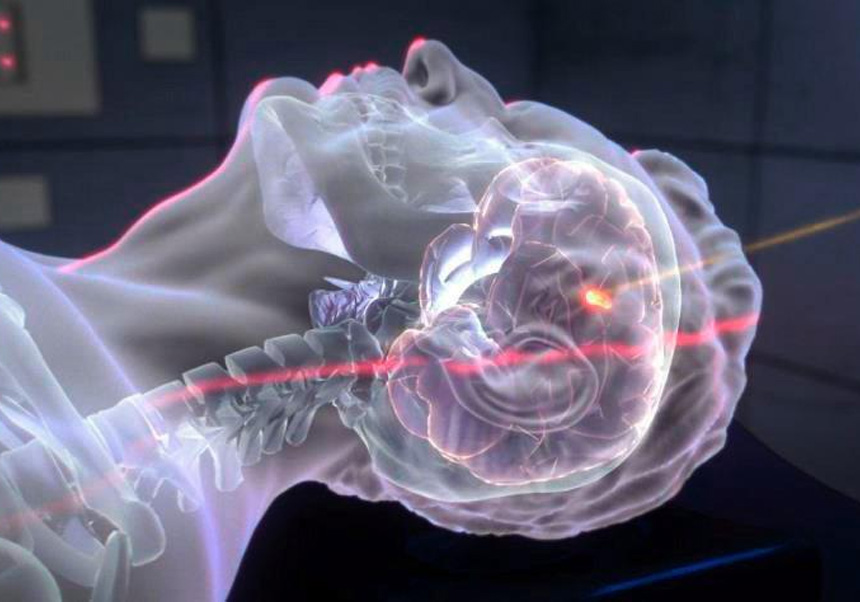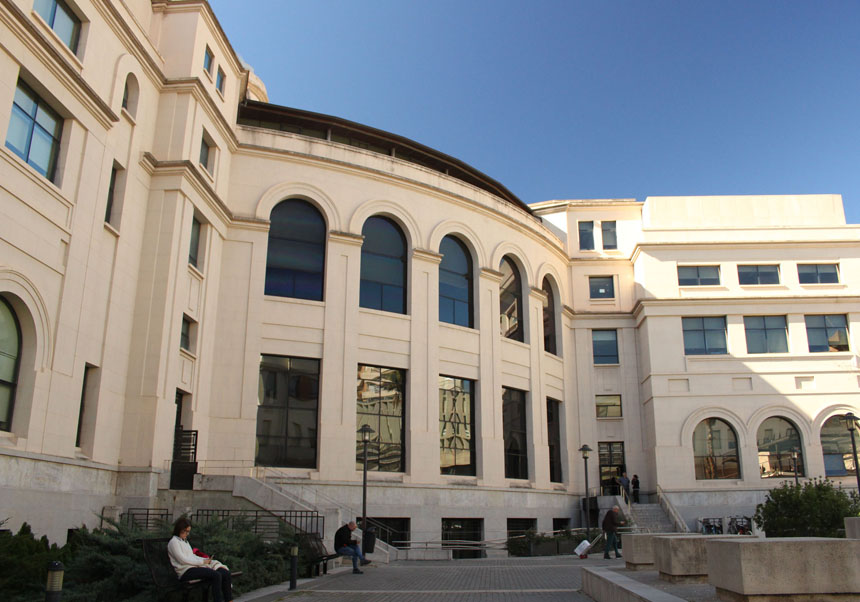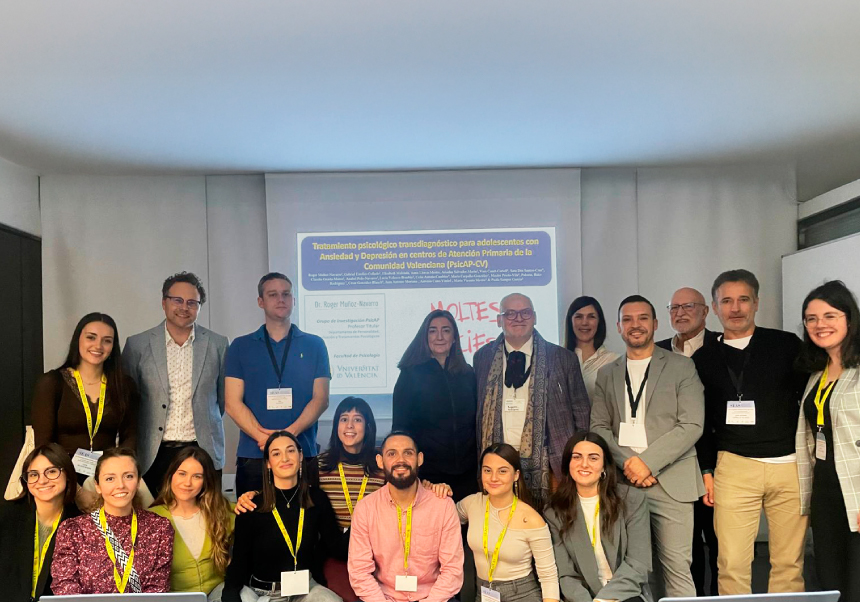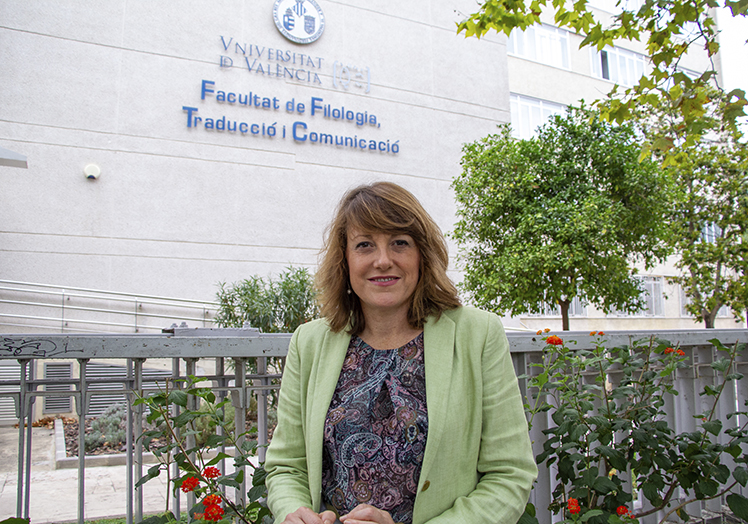The Institute of Corpuscular Physics (IFIC) will host a unique research facility to fight cancer
- Marketing and Communication Service
- February 2nd, 2024

The Institute of Corpuscular Physics (CSIC-Universitat de València) will host an injector for the first compact linear ion accelerator in Spain, which will carry out radiobiology studies. The Minister of Science, Innovation and Universities explained that this new facility, which has a budget of 18 million euros through the CDTI, will enable the development of highly advanced research and therapy programmes.
The minister of Science, Innovation and Universities, Diana Morant, announced during her visit to the House of Science that the facilities of the Institute of Corpuscular Physics (IFIC), a joint centre of the Spanish National Research Council (CSIC) and the Universitat de València (UV), located in the UV Science Park in Paterna (Valencia), will host a unique scientific research facility in Spain to fight cancer.
Morant explained that this new facility, which has a budget of 18 million euros through the Centre for Technological Development and Innovation (CDTI), within the framework of the European Regional Development Funds (ERDF 2021-27), "will allow us to develop very advanced research and therapy programmes".
“The Spanish Government is making an unprecedented commitment to people's health through science. We work to improve research and the design of health solutions in order to offer well-being and hope to citizens”, added.
Compact linear ion accelerator
The proposal to be installed at the Institute of Corpuscular Physics involves the development of a linear accelerator-injector for carbon ions (C6+) with an energy of at least 10 megaelectronvolts per nucleon (MeV/n), as the first stage of a complete carbon ion facility. At the operational level, this equipment will be the basis of a facility to be operated at IFIC for scientific exploitation in preclinical biomedicine and radiobiology.
The compact linear ion accelerator is a technique that is emerging as one of the most effective future therapies in radiological cancer treatments.
Protons (particles that form the nucleus of the atom) and ions (electrically charged atoms) make it possible to modulate irradiation on tumour tissues with great precision, with much less damage to healthy tissue than conventional radiotherapy using photons (X-rays).
Proton or ion treatment is especially recommended for paediatric cases and radio resistant tumours. Besides, ions present more radiobiological efficacy, even lower toxicity and a more favourable immunological response than protons. However, more studies are needed to confirm these results.
Ion beam technology is now sufficiently mature. The real challenge is to make them more widely available, as they are currently unique, globally rare, large, and expensive. Hence the need for a process of innovation that simplifies the instrumentation of the equipment and also enables the reconversion of hospital spaces that are currently used to facilitate a greater expansion of this therapy and its application in those patients who need it.
Unique studies at global level
The scientific use of this equipment will enable unique radiobiological studies at global level. The range of research possibilities opened up by this facility is very wide: modelling and systematising the behaviour of ions; the study of new dose deposition techniques; studying the possible combined use of different ions; complementarity in order to be able to apply variable radiation energies; and the comparison of effects according to the type of ions, among others.
These lines of research aim to contribute to clinical and preclinical aspects in order to develop a more precise and specialised planning of treatments with protons, ions, and new techniques, in coordination with similar facilities in Europe and Japan.
Public Procurement of Innovation
Morant said that the development of this equipment is also an opportunity for the Spanish industry: “We are strengthening the capabilities of the industrial fabric and R&D in Spain to become a country that develops and exports scientific and innovative solutions that improve people's lives”, she said.
The facility has been built through a Public Procurement of Innovation (PPI) process, a tool to promote innovation from the public sector through the acquisition of innovative solutions or solutions in the development phase. In this case, the adjudication has been made to AVS GROUP (Added Value Industrial Engineering Solutions S.L.U), a leading company in the design and development of equipment for the space and big science sectors. CIEMAT (Centre for Energy, Environmental and Technological Research) is also participating in the construction of the accelerator.
The project involves: Juan Fuster Verdú, CSIC research professor at IFIC; Daniel Esperante Pereira, professor at the Universitat de València; Dr. Carlos Ferrer Albiach, scientific director of the Castellón Provincial Hospital Research Foundation; and José Manuel Pérez Morales, director of the CIEMAT Technology Department, among others.
















